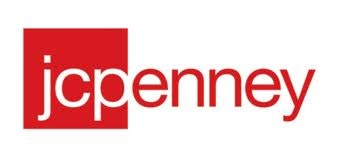If you’re interested in throwing your money away, I can think of a few good systems. Jumping to mind are lottery tickets, betting on horses named Glue, and investing in a stock based on past performance instead of future plans. But sometimes, you might want to buy a ticket or bet on a horse for fun, or even look backward to get a good idea of what the future might hold. The recent investment in J.C. Penney Company, Inc. (NYSE:JCP) by hedge funds like Glenview Capital lend themselves to the latter.
Earlier this week, Glenview announced that it was doubling its stake in J.C. Penney Company, Inc. (NYSE:JCP), and now the firm holds 9.1% of the retailer’s stock. On top of that increase, Hayman Capital took out a large position, and now it’s sitting on 5.2% of the company. Apparently the two businesses saw all the success that Bill Ackman had and decided that they needed to get in on the action.

Instead of seeing the purchases as money spent poorly, the market sprang into action, pushing J.C. Penney Company, Inc. (NYSE:JCP) shares up 6% on Wednesday. Why, you might ask, would people get so excited about other people investing in a business that no one has faith in?
Looking backward first
Ackman’s failure was based on a simple misunderstanding — he thought that J.C. Penney Company, Inc. (NYSE:JCP) customers didn’t like J.C. Penney. As it turns out, J.C. Penney customers did like the company, but no one else really did. In his attempt to fix what wasn’t broken, he broke the one part that worked. J.C. Penney still hasn’t hit bottom, and comparable-store sales were down 11.9% year over year last quarter. After the fall, Ackman finally pulled out, banking a loss of about $500 million.
What about that is enticing for these other hedge funds? The only plausible explanations are that J.C. Penney Company, Inc. (NYSE:JCP) has really hit the bottom, it’s going to sell itself soon, or it’s finally going to find a way to unlock some of the value in its real estate. The real estate option used to be a good one, but the company’s recent increase in its credit line was secured by a chunk of that real estate, putting it in difficult position.
The fall in comparable sales makes it pretty clear that J.C. Penney isn’t at the bottom yet, so there’s no need to jump in right now to get the best deal. The only plausible option, then, is that the company might be looking for a sale, but that’s speculation, at best.
Looking forward
No matter what the hedge funds think, investors pushing the stock price up have to believe that they know something that everyone else doesn’t. This is where looking back might help when looking ahead. First, let’s look at those future options.
J.C. Penney has said that it’s now focusing on restoring stability so that it can return to profit. The details of that plan include trying to drive homewares, which the company has admitted are working from a weak place. Merchandizing failed to resonate with customers, and sales have been weaker than anticipated. The company also wants to grow online sales, but they fell 2.2% last quarter. Store traffic is a big focus as well, but it too was down. In short, the company has failed to make meaningful improvements or even any major progress toward its basic goals. Now look back at that first section and reflect on what success activist investors have had so far.
Other places to maybe not lose money
If you’re not interested in following the lemmings over the cliff, you might consider some of the more successful competitors in the retail marketplace. If that’s the only criteria, your options are effectively endless, but let’s look at two.
Nordstrom, Inc. (NYSE:JWN) has had solid success over the last year, and its plans are much more robust. The company put up a 4.4% increase in year-over-year comparable sales last quarter, and it has plans to increase its ability to meet customer demand by adding fulfillment centers and broadening its online product availability. That’s going to help the business grow revenue and income, even if retail conditions remain challenging.
If that’s too rich for your blood, you can always check out Target Corporation (NYSE:TGT). The retailer had a smaller increase in comparable-store sales, with the second quarter pushing up just 1.2% from the previous year. Even so, the business had some good returns, and it’s now focusing on driving more foot traffic and converting those customers into regulars through its popular REDcard reward program.
The bottom line is that J.C. Penney got a boost because some investors were happy to follow hedge funds into the dark. I’m not ever going to be one of those investors, and the plans that J.C. Penney have in place don’t give me much faith in its future success. Instead, I’m looking at other well-known, better-placed businesses to fill that space in my portfolio.
The article Hedge Funds and the Dangers of the Herd Mentality originally appeared on Fool.com and is written by Andrew Marder.
Fool contributor Andrew Marder has no position in any stocks mentioned. The Motley Fool has no position in any of the stocks mentioned.
Copyright © 1995 – 2013 The Motley Fool, LLC. All rights reserved. The Motley Fool has a disclosure policy.





